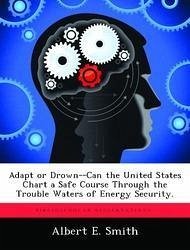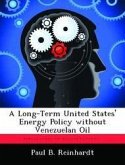The United States ensures its national security with the world's most dominant military force. Its strong economy--currently the world's largest--provides the means for this dominance. Cheap oil has fueled the American economic infrastructure for decades--principally from imports of foreign oil. The base of this infrastructure has been the transportation system which consumes over 70 percent of the country's petroleum. Designed primarily around motor vehicles, it has enabled the movement of goods and people for the optimum benefit of the economy and shaped the American way of life. Now rapid industrialization of developing nations has increased demand for oil to a point where remaining excess capacity is relatively trivial. This has resulted in rising oil prices which threaten the continuing strength of the US economy and, in turn, its ability to maintain its national security. This vulnerability demonstrates the close link between US national defense, economic strength, and energy security. The US Energy Information Administration (EIA) asserts in its 2009 Energy Outlook that oil demand will rise by almost 20 percent by 2030. Oil prices will continue to rise as production is increased to meet demand, negatively impacting the United States' gross domestic product (GDP). The driving factors include the increasing costs of producing oil from existing oil fields at a constant rate and the higher costs associated with developing new oil fields. Given this scenario, action must be taken to decrease the direct effect oil has on the US economy. Only by starting now will the nation have sufficient time to overcome organizational inertia caused by naysayers and build the requisite infrastructure to make the goal of energy security through diversification both realistic and achievable. There is no single solution for solving the Energy Security dilemma in which the United States finds itself. Since it is made up of many different climate zones and has a large regional varia This work has been selected by scholars as being culturally important, and is part of the knowledge base of civilization as we know it. This work was reproduced from the original artifact, and remains as true to the original work as possible. Therefore, you will see the original copyright references, library stamps (as most of these works have been housed in our most important libraries around the world), and other notations in the work. This work is in the public domain in the United States of America, and possibly other nations. Within the United States, you may freely copy and distribute this work, as no entity (individual or corporate) has a copyright on the body of the work. As a reproduction of a historical artifact, this work may contain missing or blurred pages, poor pictures, errant marks, etc. Scholars believe, and we concur, that this work is important enough to be preserved, reproduced, and made generally available to the public. We appreciate your support of the preservation process, and thank you for being an important part of keeping this knowledge alive and relevant.
Bitte wählen Sie Ihr Anliegen aus.
Rechnungen
Retourenschein anfordern
Bestellstatus
Storno






